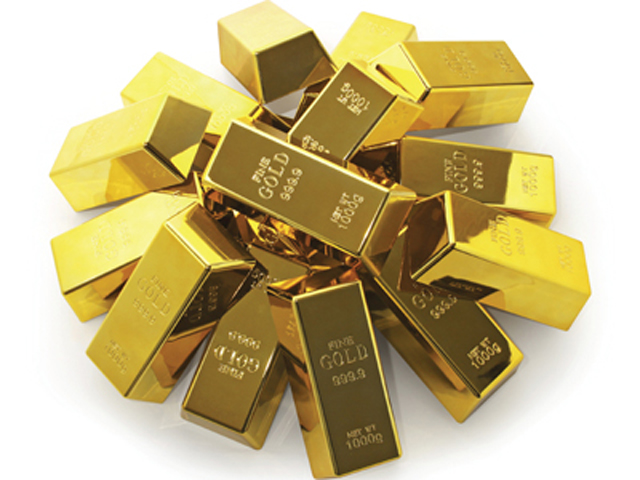norrisdupont23
About norrisdupont23
Buying Gold Bullion: A Complete Study Report
Introduction
Lately, gold has regained its status as a protected-haven asset amid economic uncertainty, inflation, and geopolitical tensions. Traders are more and more turning to gold bullion as a means of preserving wealth and diversifying their portfolios. This report goals to supply a comprehensive overview of buying gold bullion, together with its benefits, varieties, purchasing strategies, and issues for potential traders.
Understanding Gold Bullion
Gold bullion refers to gold in bulk kind, usually measured in troy ounces, and is often produced in bars or coins. The purity of gold bullion is often expressed in karats or as a decimal, with 24-karat gold being the purest form (99.99% pure). Gold bullion is distinguished from gold jewellery or other types of gold products, which may contain decrease purity levels due to the presence of other metals.

Benefits of Investing in Gold Bullion
- Hedge Towards Inflation: Gold has historically been seen as a hedge towards inflation. When currency values decline, gold prices are likely to rise, preserving purchasing energy.
- Safe-Haven Asset: Throughout instances of economic instability or geopolitical tensions, buyers flock to gold as a secure-haven asset. Its intrinsic worth typically stays stable, making it a dependable retailer of wealth.
- Portfolio Diversification: Incorporating gold bullion into an funding portfolio may help cut back overall risk. Gold typically exhibits a low correlation with other asset classes, resembling stocks and bonds.
- Liquidity: Gold bullion is highly liquid, meaning it can be easily purchased or bought in the worldwide market. This liquidity provides investors with flexibility and fast access to money when wanted.
- Tangible Asset: In contrast to stocks or bonds, gold bullion is a physical asset that buyers can hold, offering a way of security and ownership.
Kinds of Gold Bullion
Gold bullion comes in various forms, primarily bars and coins. Every type has its personal traits and advantages:

- Gold Bars: Gold bars are produced by various mints and refineries and come in numerous weights, usually ranging from 1 ounce to 400 ounces. Bigger bars usually have lower premiums over the spot price of gold, making them an economical possibility for bulk traders.
- Gold Coins: Gold coins, such because the American Gold Eagle, Canadian Gold Maple Leaf, and South African Krugerrand, are popular amongst collectors and investors alike. Coins usually carry a better premium over the spot worth because of their authorized tender standing, craftsmanship, and demand amongst collectors.
- Gold Rounds: Just like coins, gold rounds aren’t legal tender however are produced by private mints. They are usually cheaper than coins and are available numerous designs and weights.
Where to Buy Gold Bullion
Traders have a number of choices for purchasing gold bullion, each with its own benefits and disadvantages:
- Online Dealers: Numerous respected online dealers offer a variety of gold bullion merchandise. Shopping for on-line usually provides competitive pricing and the comfort of home supply. However, it is essential to choose a seller with a stable reputation and constructive buyer critiques.
- Native Coin Outlets: Local coin shops may be a superb option for buying gold bullion. Patrons can inspect the merchandise in person and obtain immediate possession. However, prices could also be greater on account of overhead costs, and inventory may be limited.
- Banks and Financial Institutions: Some banks and monetary institutions promote gold bullion to clients. Nevertheless, the choice may be limited, and premiums can be increased than these discovered at on-line dealers or coin shops.
- Gold Exchanges: Gold exchanges present a platform for getting and selling gold bullion. Traders can commerce gold in numerous types, however they might need to pay transaction fees.
- Auctions and Property Sales: Occasionally, buyers can find gold bullion at auctions or estate gross sales. While this methodology may yield lower prices, it requires careful analysis and verification of authenticity.
Elements to contemplate When Buying Gold Bullion
When purchasing gold bullion, traders ought to keep the next elements in thoughts:
- Spot Worth: The spot price of gold fluctuates day by day based mostly on market demand and supply. Buyers should keep informed about current spot costs to make sure they’re paying a fair price for their gold bullion.
- Premiums: Premiums are the additional costs above the spot value that sellers charge for gold bullion. Premiums can differ considerably relying on the kind of product, dealer, and market situations. It is essential to compare premiums from totally different sources to find the most effective deal.
- Storage and Safety: Traders should consider how they may retailer their gold bullion. Choices embody house safes, bank security deposit containers, or professional vault storage companies. Every choice comes with its own prices and safety concerns.
- Authenticity: Guaranteeing the authenticity of gold bullion is important. Traders should buy from reputable dealers and consider acquiring a certificate of authenticity for larger-worth items.
- Tax Implications: In some jurisdictions, the purchase and sale of gold bullion might have tax implications, akin to capital positive aspects taxes. Buyers should familiarize themselves with native tax laws and rules relating to treasured metals.
Conclusion
Investing in gold bullion generally is a prudent choice for people searching for to diversify their portfolios and protect their wealth towards economic uncertainties. With a range of choices out there, from gold bars to coins, buyers can select the type that most closely fits their wants. By understanding the benefits, sorts, buying strategies, and key issues, potential buyers can make knowledgeable choices when entering the gold bullion market. As with any funding, thorough research and careful planning are essential to maximise the advantages of investing in gold bullion.
No listing found.
